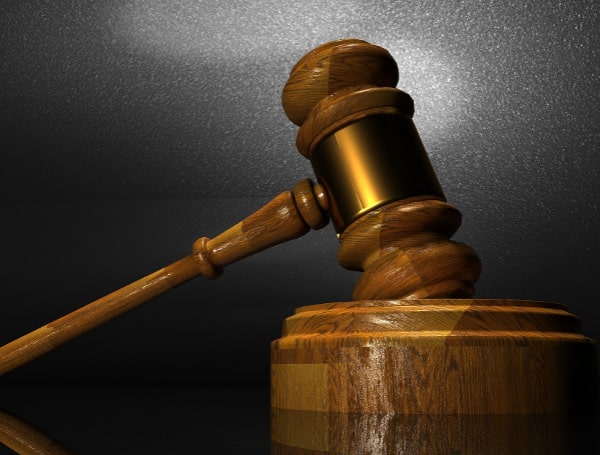Judges Gavel, TFP File Photo Being a trustee is an important role that comes with significant responsibilities. Trustees are responsible for manag

Being a trustee is an important role that comes with significant responsibilities. Trustees are responsible for managing and overseeing the assets of a trust, ensuring they are distributed properly and in accordance with the trust’s legal documentation. However, being a trustee also carries inherent risks. It is essential to understand your legal obligations and potential liabilities as a trustee to ensure you fulfill your duties effectively.
What is Trustee Liability?
Trustee liability refers to the legal responsibility held by trustees for any breach of their duties or improper handling of trust assets. Trustees are considered fiduciaries, meaning they have a legal obligation to act in the best interests of the beneficiaries and exercise their powers in good faith.
Legal Responsibilities of Trustees
The following are the legal duties and responsibilities of trustees:
1. Duty of Care
Trustees have a duty to act with reasonable care, skill, prudence, and diligence when managing trust assets. This includes making informed decisions based on careful research, seeking professional advice when necessary, and documenting all transactions related to the trust.
2. Duty of Loyalty
Trustees must prioritize the interests of the beneficiaries above their own personal interests. They should not self-deal or take advantage of their position for personal gain unless explicitly authorized by the trust document.
3. Duty to Follow Instructions
Trustees have an obligation to follow the instructions outlined in the trust document accurately. They must adhere to any limitations or conditions placed upon them by the settlor (the person who created the trust) while making distributions or investment decisions.
4. Duty to Diversify Investments
To mitigate risk, trustees generally have a duty to diversify investments within reason unless expressly directed otherwise by the trust document.
Risks Faced by Trustees
Some of the primary risks that trustees face can include:
1. Breach of Fiduciary Duty
Failure to fulfill fiduciary duties can expose trustees to claims of breach of fiduciary duty from beneficiaries or other interested parties involved in the trust administration.
2. Mismanagement of Assets
Inadequate management, improper accounting, or poor investment decisions can lead to losses for the trust. Trustees may be held personally liable for damages resulting from such mismanagement.
3. Negligence or Fraud
If trustees violate their duty of care, act negligently, or engage in fraudulent activities that harm the trust and its beneficiaries, they may face legal consequences and personal liability.
4. Failure to Follow Legal Requirements
Trustees must comply with all applicable laws governing trusts and ensure timely filing of tax returns and proper record-keeping. Failure to meet these legal requirements can result in penalties, fines, or potential legal actions against the trustee.
Mitigating Trustee Liability
Although there are risks involved in being a trustee, it is possible to mitigate these risks through prudent practices and proactive measures:
1. Proper Documentation
Maintain clear and accurate records of all trustee decisions, financial transactions, and communications with beneficiaries. These records can serve as evidence of diligence and good faith if legal concerns arise.
2. Seek Professional Advice
Consulting professionals such as attorneys, accountants, or financial advisors who have expertise in trust administration can help trustees navigate complex legal requirements and make informed decisions.
3. Regular Communication with Beneficiaries
Keeping beneficiaries informed about trust activities fosters transparency and helps prevent misunderstandings or disputes that might give rise to liability claims against trustees.
4. Obtain Liability Insurance
Consider obtaining trustee liability insurance coverage to protect yourself from personal financial exposure in case a claim arises related to your duties as a trustee.
Conclusion
Understanding trustee liability is crucial for anyone assuming this role within a trust arrangement. Trustees have fiduciary responsibilities that demand prudence, loyalty, adherence to instructions, diversification of investments if necessary, and compliance with all relevant laws. Without proper vigilance in fulfilling these obligations, trustees expose themselves to potential breaches of fiduciary duty claims or personal liability for mismanagement. By adopting best practices, seeking professional advice, and maintaining open communication with beneficiaries, trustees can effectively manage the risks associated with their role. Ultimately, fulfilling the duties of a trustee requires the utmost care, responsibility, and accountability.
Please make a small donation to the Tampa Free Press to help sustain independent journalism. Your contribution enables us to continue delivering high-quality, local, and national news coverage.
Android Users: Download our free app to stay up-to-date on the latest news.
Connect with us: Follow the Tampa Free Press on Facebook and Twitter for breaking news and updates.
Sign up: Subscribe to our free newsletter for a curated selection of top stories delivered straight to your inbox.
